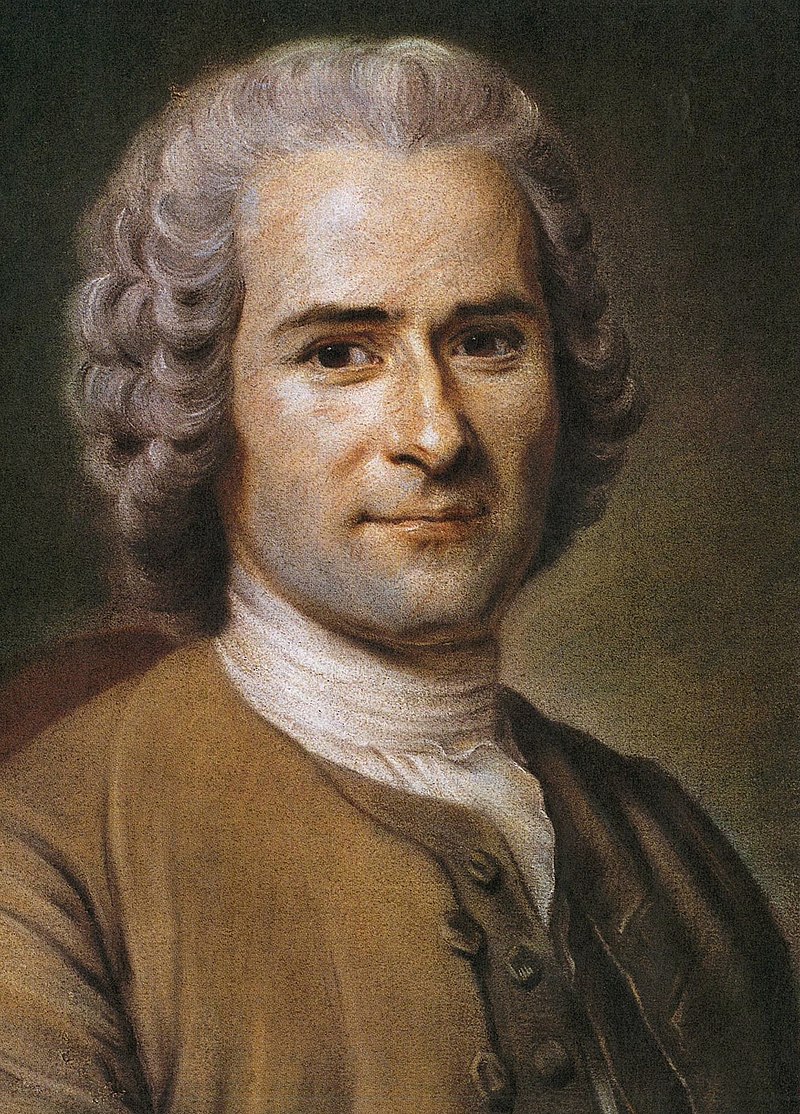The House of Jean-jacques Rousseau in Geneva (Switzerland)
“The right of slavery is null, not only because it is illegitimate, but because it is absurd and does not mean anything. These words, slavery and right, are contradictory. ” “The right of conquest, not being a right, could not found any other. »
Jean-Jacques Rousseau – Du Contrat Social - 1762
The Espace Rousseau Geneva
Jean-Jacques Rousseau, born in 1712 in Geneva and died in 1778 in Ermenonville, condemned slavery in its essence and the very principle of servitude, which makes a man an object, deprived of any right and any legal personality.
Such a condemnation of the very principle of slavery is a major innovation in the history of humanity. Indeed, none since antiquity had ever pronounced such condemnation, limiting himself to requiring masters a human treatment, soft and moderate, of their slaves, whose legitimacy of their servitude was long justified by these authors. After his death, his body was transferred on the Pantheon of Paris in 1794.
Jean-Jacques Rousseau is very successful with the epistolary novel Julie ou la Nouvelle Héloïse (1761), one of the largest print runs of the 18th century. In the philosophical realm, various works inscribe Rousseau in the world of thought for a long time: Discours sur les sciences et les arts (1750), Discours sur l'origine et les fondements de l'inégalité parmi les hommes (1755) and Du contrat social (1762).
Rousseau's political philosophy is built around the idea that man is naturally good and that society corrupts him. By “naturally good”, Rousseau understands that the human being in the state of nature has few desires so that it is more fierce than bad. It is the interactions with other individuals that make human beings “bad” and lead to increased inequalities. To regain a natural goodness, man must resort to the artifice of the social contract and be governed by laws derived from the general will expressed by the people. For Rousseau, the general will is not universal, it is peculiar to a State, to a particular political body. He is the first to confer sovereignty to the people. In this, one can say that he is one of the thinkers of democracy even if he is favourable to what he calls the elective aristocracy or the temperate government.

Portrait of Jean-Jacques Rousseau
For him, political systems based on economic interdependence and interest lead to inequality, egoism and ultimately to bourgeois society (a term he is one of the first to use).
Rousseau's political philosophy exerts a considerable influence in the revolutionary period during which his book Du Contrat Social is "rediscovered”. In the longer term, Rousseau marks the French republican movement as well as German philosophy.
His rejection of slavery rests on a vigorous conception of equality between men within the same society as well as between peoples. From the outset, he stands from the point of view of the principles of natural right and political philosophy. This is why he does not enter into the logic of the contemporary debate of the denunciation of the horrors of slavery and trafficking, then abundantly developed by others, but is placed at the level of human rights, which is independent of the circumstances of places and time.
Manuscript of Jean-Jacques Rousseau
Here is precisely the radical break introduced into the history of human relations by the Enlightenment. On this topic, Rousseau is the one who formulated in the strongest terms, the most radical, of universal scope, the exclusion of the right of people of any form of slavery.
He did not add an additional diatribe to the already long list of texts describing with realism, sometimes difficult to bear, the horrors of slavery. Remaining faithful to his intellectual approach, Rousseau brought the condemnation to a theoretical level never reached. His refusal of slavery is of a general nature: at all times and in all places it is never legitimate, even if it is legal in light of positive law of a particular society at a given moment of its history.







